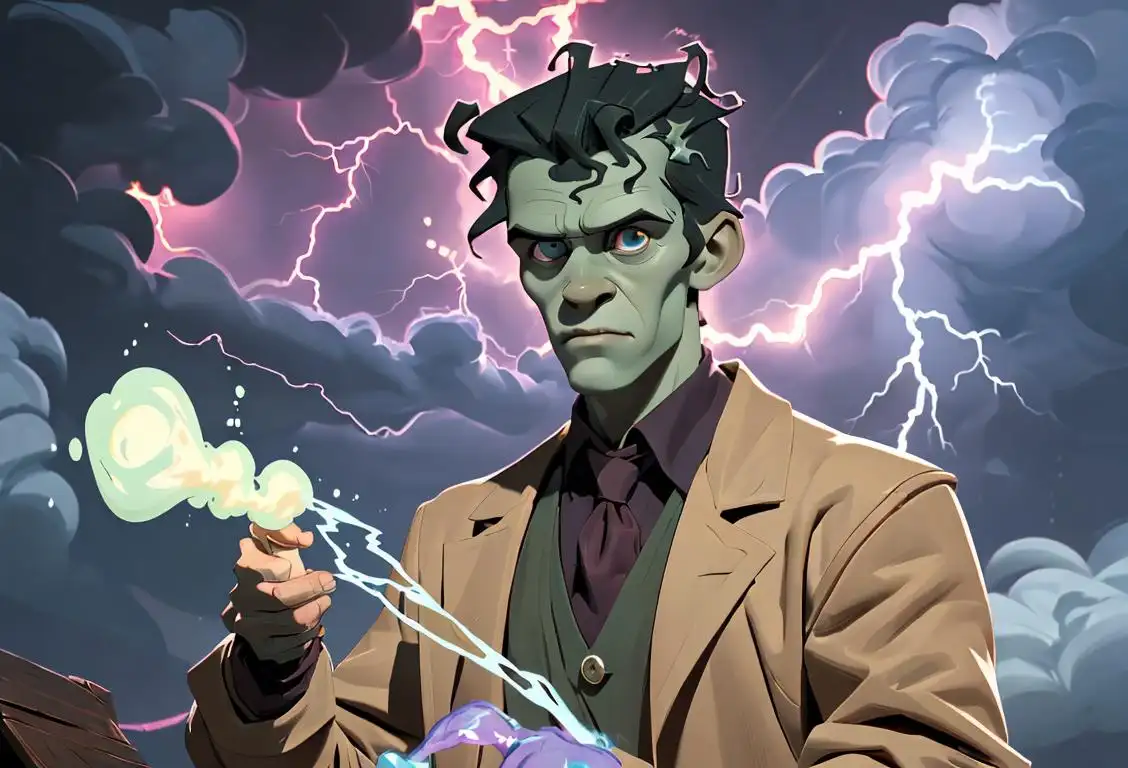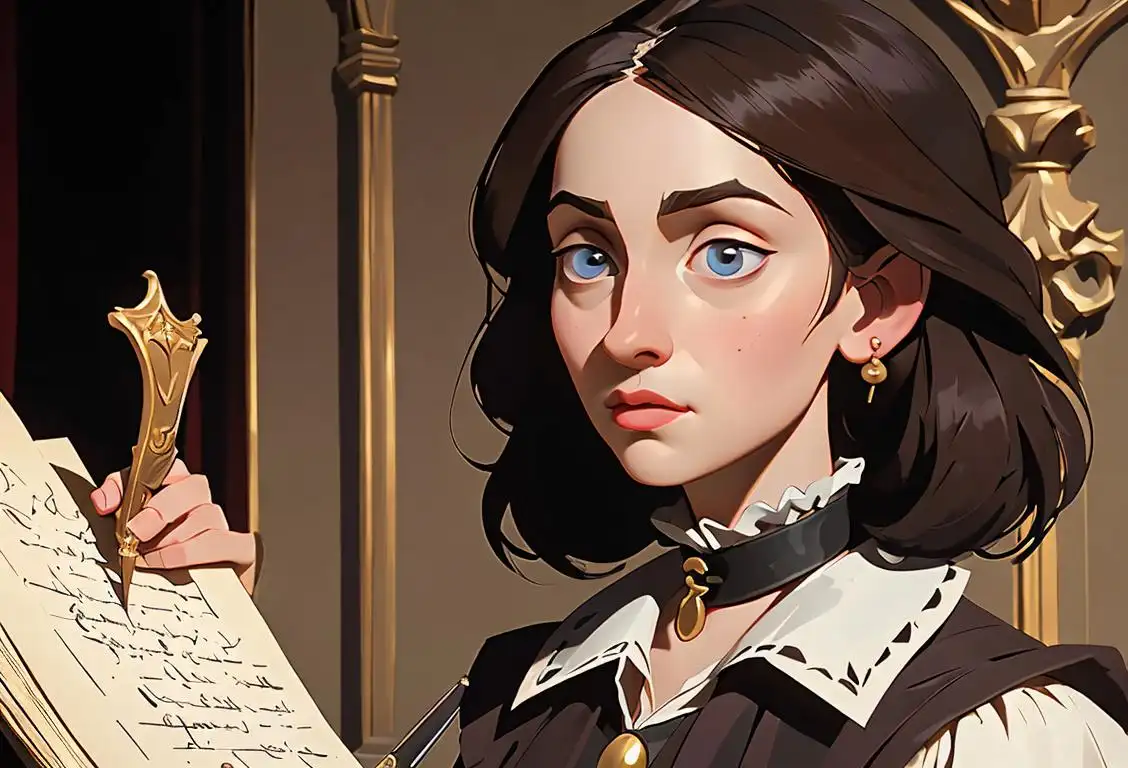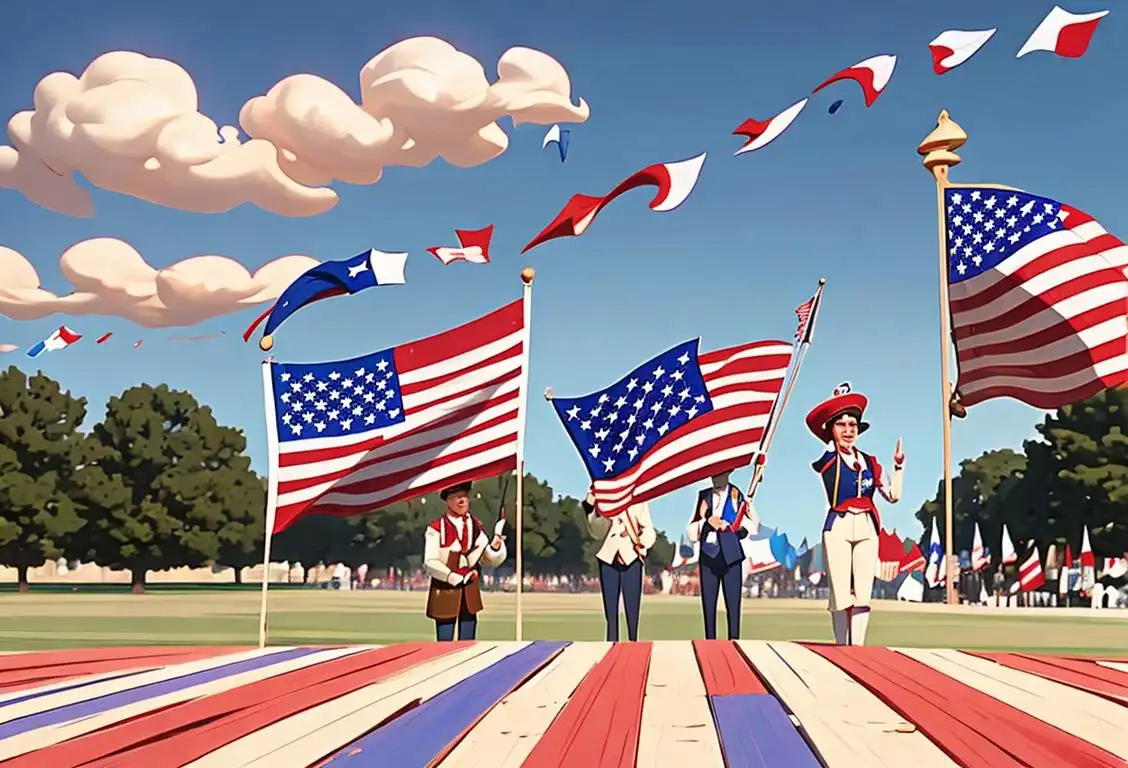National Frankenstein Day

Welcome to the electrifying world of National Frankenstein Day! Get ready to bolt straight into the fascinating history and monstrous fun of this special day.
When is Frankenstein Day?
It's national frankenstein day on the 29th October.
The Birth of a Legend
On National Frankenstein Day, we celebrate the iconic creation of Mary Shelley's Frankenstein; or, The Modern Prometheus. This electrifying novel, first published in 1818, has become a timeless masterpiece of literature, captivating audiences with its themes of science, ambition, and the consequences of playing god.
Since its humble beginnings, the tale of Frankenstein's monster has taken on a life of its own. It has inspired countless adaptations in literature, film, and popular culture, cementing its place as a beloved and legendary character.
Interestingly, Shelley was just 18 years old when she conceived the idea for Frankenstein during a fateful trip to Lake Geneva, Switzerland. Legend has it that the gloomy weather and ghost stories shared among Shelley and her companions, including Lord Byron and Percy Shelley, sparked her imagination and led to the birth of this literary masterpiece.
A Monster Mash of Fun
On National Frankenstein Day, you can unleash your inner mad scientist and dive headfirst into a cauldron of delightful activities. Here are a few electrifying ideas to get you started:
- Organize a Frankenstein movie marathon, featuring classic adaptations like the 1931 film starring Boris Karloff or more modern interpretations like Mel Brooks' comedic masterpiece, Young Frankenstein.
- Create your own Franken-snacks! Decorate cupcakes or cookies with icing stitches and bolts to pay homage to the creature himself.
- Visit a local museum or exhibition that explores the history and impact of Mary Shelley's Frankenstein.
Remember to share your monstrous exploits on social media using the hashtag #NationalFrankensteinDay. Who knows, you might just inspire others to join in the electrifying fun!
History behind the term 'Frankenstein'
1818
The Birth of Frankenstein
In 1818, Mary Shelley published her famous novel 'Frankenstein; or, The Modern Prometheus'. The story follows the ambitious scientist Victor Frankenstein, who creates a grotesque creature out of reanimated body parts. Shelley's novel explores themes of scientific discovery, moral responsibility, and the consequences of playing god.
1823
Popularization and Adaptations
Frankenstein quickly gained popularity and became a widely discussed work of literature. In 1823, a stage adaptation of the novel titled 'Presumption; or, The Fate of Frankenstein' by Richard Brinsley Peake was performed in London. This adaptation played a significant role in familiarizing audiences with the story and characters, contributing to the cultural impact of the term.
1931
Universal Pictures' Frankenstein Film
The term 'Frankenstein' became even more firmly embedded in popular culture with the release of the iconic film 'Frankenstein' by Universal Pictures in 1931. Directed by James Whale and starring Boris Karloff as the Monster, this adaptation brought the story to a wider audience. The film's visuals and Karloff's portrayal of the creature created an enduring image of Frankenstein's Monster in the public imagination.
1974
Young Frankenstein Comedy
In 1974, Mel Brooks released the comedy film 'Young Frankenstein,' a parody of the classic Frankenstein story. Starring Gene Wilder as the descendant of Victor Frankenstein, the film provided a humorous take on the tale while paying homage to the iconic elements. 'Young Frankenstein' further reinforced the cultural significance of the name 'Frankenstein' and its association with the legendary monster.
1990s
Frankenstein in Pop Culture
From the 1990s onward, 'Frankenstein' continued to permeate popular culture in various forms. The creature and its creator appeared in numerous films, television shows, books, and artworks, often reimagining and reinterpreting the characters. The name 'Frankenstein' became synonymous with monstrous creations, elements of horror, and scientific hubris in the wider collective consciousness.
Did you know?
Did you know that the iconic image of Frankenstein's monster with bolts in his neck actually originated from the 1931 film adaptation? It wasn't described that way in Mary Shelley's original novel. Hollywood's creativity electrified the monster's appearance!Tagged
fun history movies literatureFirst identified
30th August 2015Most mentioned on
29th October 2015Total mentions
231Other days
Frankenstein Day
Shakespeare Day
Teacher Appreciation Day
Vodka Day
Former Prisoner Of War Recognition Day
Book Lovers Day
Flag Day
Memorial Day
Liberation Day
Video Game Day








